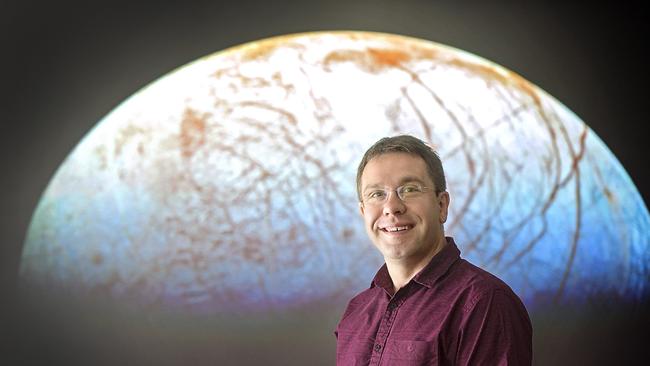University of Southern Queensland’s Jonty Horner believes alien life is too remote for humans to detect
An Ipswich space expert believes this generation of humans could unlock the secrets of alien life forms.

Ipswich
Don't miss out on the headlines from Ipswich. Followed categories will be added to My News.
Fox Mulder from the cult 90s show The X-Files used to say the truth is out there, and he might have been onto something.
The release of the Pentagon’s UFO report has now stirred up interest with a USQ space expert who is weighing in on the argument that we might not be alone in the universe.
Over the weekend, the US Department of Defence released a report documenting Unidentified Aerial Phenomena, which are more commonly referred to as UFOs.
University of Southern Queensland’s Centre for Astrophysics astrobiologist and planetary scientist Professor Jonti Horner said he doubted aliens were behind the sightings, instead suggesting the UAPs in the report are likely to have been natural in origin, or simply technology from other countries here on planet Earth.
“I would almost certainly say they are not aliens,” Professor Horner said.
“Extraordinary claims require extraordinary evidence.
“It could be technology people are not aware of yet. The US says it is not their technology.
“Most of them are probably natural phenomena.”
While Professor Horner doesn’t believe the UAPs in the Pentagon report are extraterrestrial in origin, he said he believes aliens are likely to exist somewhere out there.
He says he does not think people have the ability to detect them, as they could live on planets too remote for us to see.
“Imagine, for a minute, that life is so rare that only one star in a million has a planet that develops life,” Professor Horner said.
“Well, that still means that life will be everywhere. In that scenario we‘d have 400,000 stars in our galaxy that host life.
“But what are the odds that any of those stars is close enough to us for us to detect that life?
“What if one in a billion stars gets technologically advanced life, like us, that can scream its existence out to the cosmos?”
Professor Horner said the human race may very well find evidence of other life in the universe, but it was more likely to be a less intelligent form than humans.
“I think we are very possibly going to be the generation that gets the answer to whether there is alien life out there,” Professor Horner said.
“We are moving towards — in the next decade or so — to the point where we may find other life out there.
“It’s different to finding simple life in comparison to complex life.
“We could find life in the coming decades, but it is very unlikely they are coming here to visit.
“It’s hard to imagine that with how many things are in the universe, stars and planets, that we are the only place life got started.
“They will be so distant that it would be like looking for a needle in a haystack, but you don’t know what a needle is, and you have never seen a haystack,” he said.
The Pentagon report theorised the UAPs were airborne clutter, such as birds, balloons or drones, natural atmospheric phenomena, such as ice crystals and thermal fluctuations, or technology from either United States projects or foreign powers.


